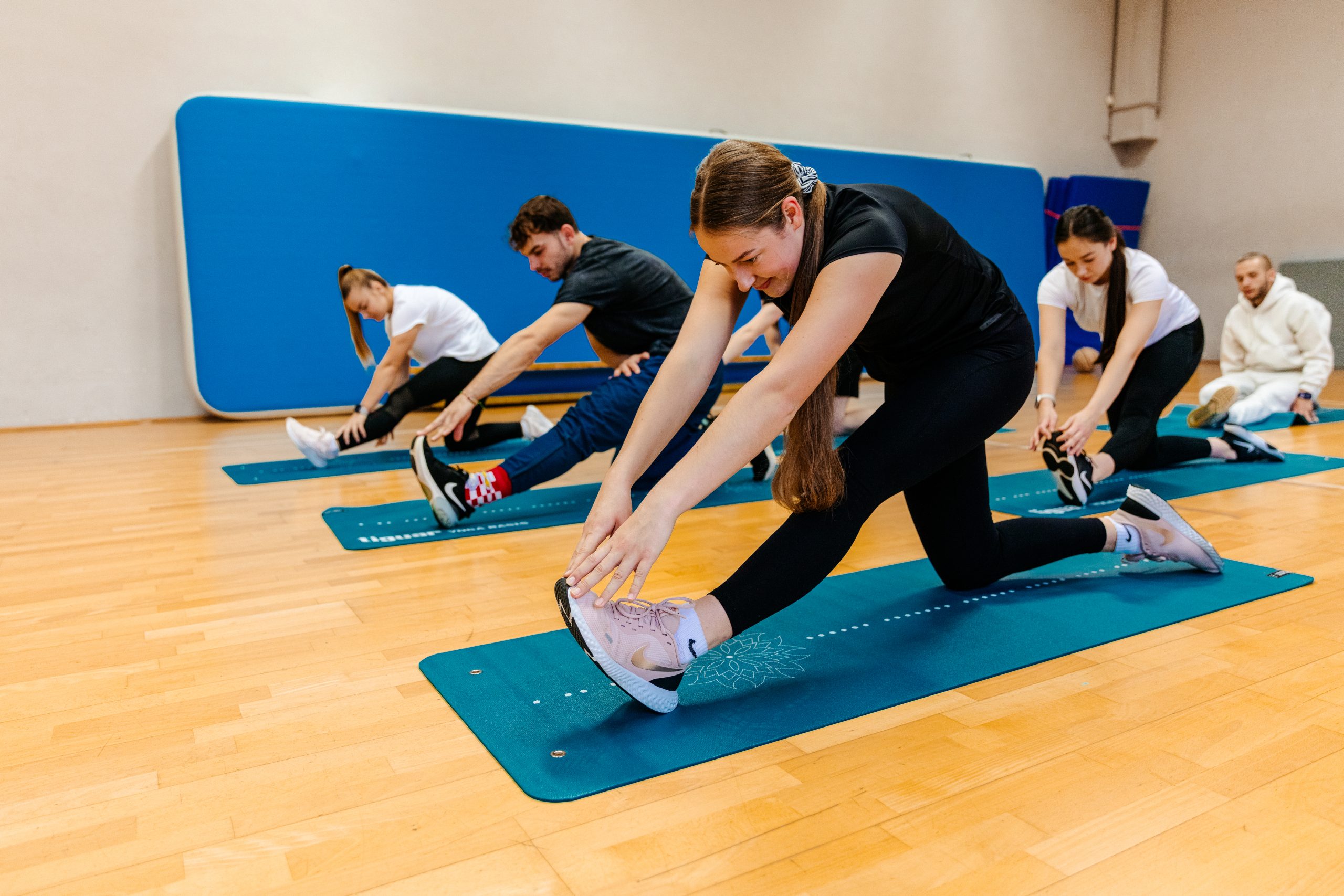How can we encourage society to be more active and live healthier lives? What exactly is health-enhancing physical activity and its role in achieving sustainability? Which global trends in physical activity are shaping the future, and what do the latest scientific studies reveal?
Answers to these and other questions will be sought by nearly 400 experts from more than 40 countries on September 17–19 in Kaunas, Lithuania, where, for the first time in the Baltic States, the prestigious HEPA Europe conference will be held. This is one of the largest health-promoting events in the region, emphasising that physical activity should not only be a habit, but also an investment in a healthy society and effective prevention against many diseases.
“This event provides an excellent opportunity to share the most advanced scientific and practical knowledge, promote sustainability in society, and encourage innovative solutions in the fields of education and sport. I am delighted that such a conference will be held in Lithuania – it will contribute to the promotion of healthy lifestyles and physical activity in our country and throughout Europe,” says Raminta Popovienė, Minister of Education, Science and Sport of the Republic of Lithuania.
Internationally, the HEPA Europe conference is considered one of the most important forums where experts from different countries meet. It promotes scientific dialogue, cooperation, and the search for new solutions.
“It is an extremely important platform that brings together scientists, policymakers, and practitioners with the aim of sharing the latest research findings and innovations. We are thrilled that this year’s event is taking place in Lithuania – it is a unique opportunity to strengthen the collaboration and learning across Europe and beyond,” highlights Dr. Anna Chalkley, Chair of the World Health Organization’s (WHO’s) HEPA Europe Network.
The topic of this year’s event is “Taking Steps Towards Sustainability”. The conference will focus on sustainability based on the close synergy between the promotion of physical activity and the United Nations’ Sustainable Development Goals. This will open up opportunities to tackle several important public health challenges at once, from preventing chronic diseases to creating healthier cities.
“This conference is particularly relevant and important to the Lithuanian Sports University, as we prepare specialists who promote physical activity and advance public health. This is the first event of this magnitude in the Baltic States, offering us a great opportunity to present our country and city, foster international relations, and demonstrate that physical activity and health are national priorities,” comments Prof. Diana Rėklaitienė, Rector of the Lithuanian Sports University.
Despite scientific research showing the benefits of health-enhancing physical activity, implementing this knowledge in practice is more complex than it appears. Insufficient physical activity remains one of the biggest health problems in modern society, affecting both physical and mental health. Ingrida Zurlytė, Head of the WHO Office in Lithuania, points out that the HEPA Europe Network has been contributing to solving this problem for 20 years.
“Low rates of participation in physical activity pose a threat to public health, and it is therefore essential to promote a more active lifestyle among all groups in society. This year’s conference in Kaunas presents an exciting chance to strengthen multisectoral efforts and jointly seek solutions to improve the health of people in Lithuania and across Europe,” insights Ingrida Zurlytė.
The importance of physical activity is further acknowledged by the Ministry of Health of the Republic of Lithuania. According to Audrius Ščeponavičius, Director of the Public Health Department, long-term studies show that physical inactivity is one of the main risk factors for chronic diseases, especially cardiovascular disorders and obesity.
On the report of data from the Organisation for Economic Co-operation and Development (OECD), only 26% of Lithuanian residents over the age of 15 exercise at least three times a week (the EU average is 31%), and the level of physical activity among adolescents is even lower. “I believe that the conference in Kaunas will deepen the dialogue and offer solutions on how to make physical activity a daily habit for everyone,” states A. Ščeponavičius.
The first HEPA Europe conference was held in 2005 in Gerlev, Denmark, and since then it is held in a different country each year. This year, Lithuania has the honour of hosting the conference for the first time.
“Well-known researchers and practitioners will gather in Kaunas to share the latest knowledge about physical activity. Among them – LSU’s researcher Assoc. Prof. Dr. Brigita Miežienė, who will examine the socio-ecological approach to active transport, researcher Assoc. Prof. Dr. Peter Gelius, who will present the multidimensional models of sustainability and their implications for physical activity, and Francesca Racioppi, the Head of the WHO European Centre for Environment and Health, who will talk about the role of active mobility for a sustainable future. I am confident that the conference participants will find other relevant presentations and discussions interesting as well,” underlines Dr. Kristina Motiejūnaitė, the Chair of the Conference Organising Committee and the Head of the Department of Health Promotion and Rehabilitation at LSU.




